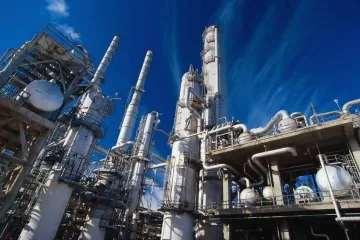Trump's global tariffs have destabilized the development of Europe's chemical industry

Trump's tariffs pose a threat to Europe's chemical industry
The chemical industry — the fourth largest export sector in the EU after mechanical engineering, automotive and pharmaceuticals — has been suffering from high production costs for several years due to the sharp increase in gas and electricity prices following Russia's invasion of Ukraine.
Weak demand in key industries has forced some companies to close plants and cut jobs. Now, US tariffs of at least 15% on EU goods have been added, hitting the industry's main customers — the automotive, engineering and consumer goods industries.
Automakers around the world have already recorded billions in losses due to President Donald Trump's trade war.
According to LSEG, European chemical companies' third-quarter profits are expected to be 5% lower after a 22% drop in the second.
"After the energy crisis, we were hoping for a steady recovery in volumes and margins in the European chemicals sector," said Metzler Research analyst Thomas Schulte-Forwick. "But tariffs, price pressure and tough competition from Asia are creating a toxic mix."
The biggest players, including BASF, Brenntag and Lanxess, are partly protected by their strong presence in the US, but they too are suffering from cautious customer behavior. Customers are postponing purchases: where they used to plan 3-4 months in advance, orders are now being placed only a few weeks in advance. BASF lowered its full-year forecast in July.
The European Union had planned to try to speed up legislation by the end of the week of August 27 to eliminate all tariffs on U.S. industrial goods, a demand from President Donald Trump before the U.S. would reduce tariffs on EU car exports.









